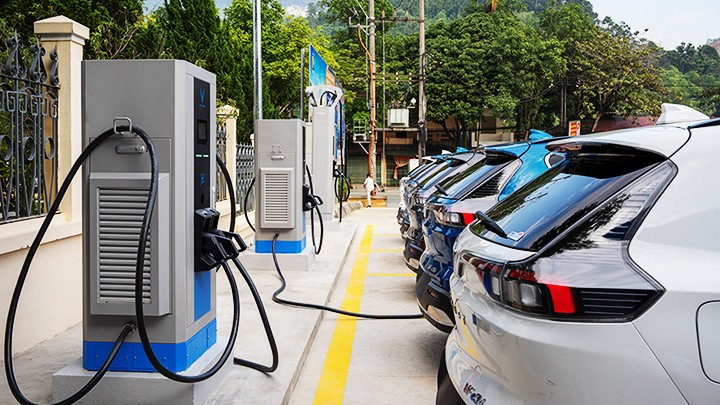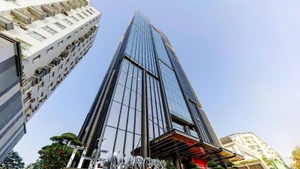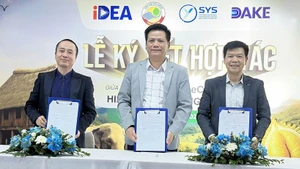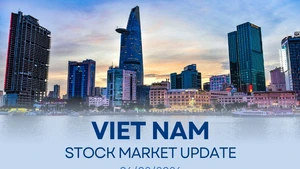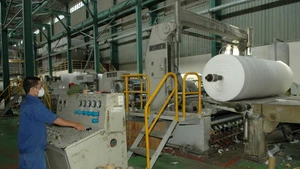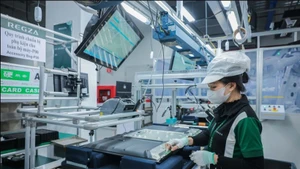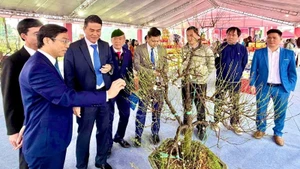Lack of charging stations
In recent years, the EV market in Vietnam has grown significantly with the presence of many EV brands, with notable names including Wuling, BYD, VinFast, and some electric models from brands such as Hyundai and Honda.
However, foreign companies are now expressing difficulties, as Vietnam’s infrastructure is limiting the development of EV businesses. Recently, Wuling launched the Wuling Bingo line with various versions. However, the Bingo line is facing major questions as its charger is not compatible with Vietnam’s current charging ports.
VinFast’s exclusive fast-charging stations or other public charging stations from third parties investing in Vietnam all use the CCS2 charging standard, similar to the European market. Meanwhile, the GB/T fast-charging port equipped on the Wuling Bingo is only available in the Chinese market. Although Wuling Bingo users can purchase additional adapters, it is not very convenient. Not to mention, using third-party charging stations also results in higher costs.
Previously, Wuling also launched the Hongguang Mini EV in the Vietnamese market. However, the lack of charging infrastructure has caused the model to lose ground to VinFast’s EVs, with only 500 Mini EV units sold to date.
As for VinFast, with the establishment of V-GREEN Global Charging Station Development Joint Stock Company, the company aims to professionalise the development of charging station infrastructure. It is learned that VinFast will continue to expand its charging station system with a franchise model for people interested in cooperation.
Observations show that people are mainly choosing VinFast EVs over other brands. According to recently released figures from VinFast, the company delivered more than 11,000 EVs of various types to customers in October, a 21% increase from the previous month, bringing the total number since the beginning of the year to more than 51,000 units.
VinFast has officially become the best-selling automotive brand in the Vietnamese market, surpassing traditional internal combustion engine manufacturers like Toyota and Hyundai.
Policies exist but…
The challenges with infrastructure and charging station systems are clearly evident, and the government has issued numerous directives, documents and mechanisms to promote the development of EV charging stations.
The approval of an action programme on green energy transition and reduction of carbon and methane emissions in the transport sector (Green Energy Transition Action Programme) in 2022 has set requirements for developing EV charging infrastructure.
Another decree that provides detailed guidance for implementing the Housing Law has also created a corridor for developing charging stations in apartment complexes. In addition, a circular recently issued by the Ministry of Transport requires rest stops to be equipped with charging stations.
Furthermore, with approximately 51,000 VinFast EVs in circulation, there are only about 1,800 charging stations built, meaning each station has to serve an average of nearly 30 vehicles. This number is three times higher than the world average (10 vehicles/charging station) and five times higher than China (6 vehicles/charging station).
It is clear that Vietnam’s EV charging station market has significant potential waiting to be tapped in the coming time. Currently, besides VinFast’s V-GREEN, the EV charging market includes other businesses such as public charging station providers EV One and EverCharge. Then there is the more crowded group of those providing home and company charging solutions, including EverEV, GreenCharge, Star Charge, Autel and others.
However, unlike electric vehicle development, which requires technological foundation and mechanical expertise, developing charging stations is more related to retail operations, legal aspects and energy security, making it primarily a race for domestic enterprises. In this context, three businesses with potential in this field are being discussed: VNPT, EVN, and Viettel.
However, making a comprehensive investment in charging station systems is a complex challenge. Ultimately, business operations are all about profit. VinFast builds its charging station system to support its EV ecosystem. Meanwhile, other businesses are still testing the waters because the EV market has not reached a scale that requires third-party providers, as VinFast EVs primarily use VinFast charging stations. Paradoxically, other EV brands are waiting for third parties to develop charging station systems. Without charging stations, these manufacturers will certainly struggle to convince customers to buy their vehicles.
According to Nghiem Viet Cuong, Marketing Director of CG Charging, the EV charging station market remains a chicken-and-egg problem, meaning vehicle manufacturers are waiting for the development of electric charging station partners, so coverage speed and implementation time will be the key factors in the coming period.
